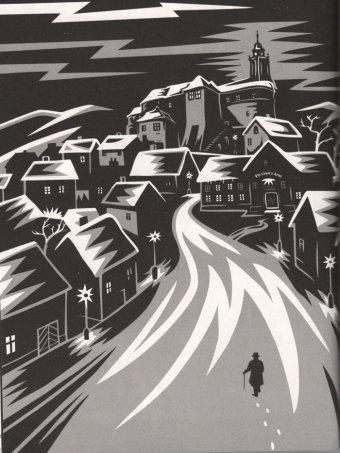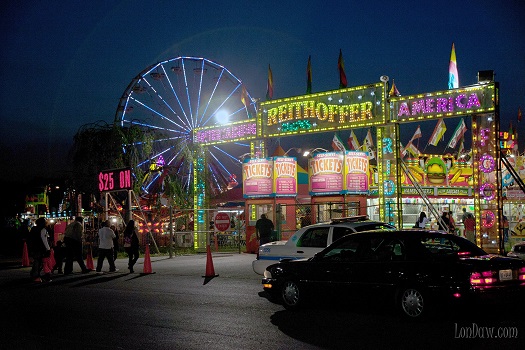
Oh no,
not me, not my book!!!!! An
error!!!! Not just a harmless
proofreading slip-up. (They'll
figure out that the "not" was omitted from "He was admirable", and that it
should read, "He was NOT admirable."
And that "kissed" in "she kissed him in the ****", should really read
"kicked.") No, not that kind of
trivial error, inevitable for a 6,000 page book proofread by a man with failing
eyesight. Nor even the simple error
(or liberty) in geography (I couldn't get a decent road map of Katanga, and
perhaps I thought I could get away with anything, after witnessing a college
classmate state that Saudi Arabia and China were next-door neighbors.)
No, not those kind of simple, forgivable, "anyone could make them", "who
would even notice?" types of mistakes. I
mean the kind of dreadful error that could sink a ship without lifeboats; that
could unleash a deluge of outraged fans and bury me beneath an avalanche of fury
and scorn. Forever.
But wait - maybe not all is lost...
There are advantages to writing "alternative histories", in which one's
worst factual mistakes COULD always be attributed not to one's blundering
nature, but to the slightly varied nature of the reality that one has created as
one's setting. Yes, let's go that
way. The alleged error, noted by
someone who we will refer to as John L Sullivan on August 20, 2015, reared up
its ugly head on page 2700 of the fixed PDF version of THE MARCH OF THE
ECCENTRICS, as the brilliant pro-Eccentric General Manfeld seemed to convey the
idea that he thought JRR Tolkien's 'Middle Earth' (from
The Hobbit and
Lord of the Rings) was actually
located "inside" the earth, as opposed to occupying a central geographical
position on the surface of a somewhat altered version of the earth.
I believe at some other point, Julius Herman Abu, the mad scientist
protagonist of the Eccentrics novel, provides us with evidence that he is
similarly deceived. Not to worry.
Let's officially extricate ourselves from this one by imagining that in
the alternative reality of the MARCH OF THE ECCENTRICS, JRR Tolkien's "Middle
Earth" actually does refer to an
inner-earth world, a location in keeping with the ones evoked by Jules Verne in
JOURNEY TO THE CENTER OF THE EARTH, Vladimir Obruchev in PLUTONIA, or any one of
the numerous Irish folktales, which often had the enchanted aes sidhe (or sidhe)
- the fairy folk - dwelling in magical spaces beneath the ground.
Problem solved! Sorry,
J.R.R., but convenience is so much more soothing than accuracy.
And you could have gone that way - couldn't you?
As for
how a sometimes perfectionistic writer like myself could get himself into a
quandary like this, well, the explanation can be found in the word "sometimes."
Actually, truth is, I read The
Hobbit in the 6th grade which, sadly, was a considerable time ago.
At the time, I believe I was deeply impressed (horrified?) by the flight
of Bilbo and his friends through the underground tunnel system of the Goblin
world, and somehow, as other parts of the story receded with time, I remained
with a strong 'subterranean' impression of the geography.
Compound that with later readings of esoteric/occult literature regarding
the theory of a 'hollow earth', also referred to by some writers as 'the Middle
Earth' - a space said to be inhabited by anything from lost worlds of the
ancients, to fairies and elves, to extraterrestrials - and the mistake becomes
comprehensible, if not forgivable.
(I am already building barricades to resist the furious onslaught of Tolkien
fans!) Obviously, if I had only
gone on to read The Lord of the Rings,
joined a Tolkien fan club, web site, or gaming group, or gone to see the movies
which were rolled out in more recent years, I might have been alerted to my
error in time to keep it out of my book, but no - I was too busy writing my own
story, and watching reruns of 'Dark Angel'!
(Sorry, JRR, but there was nobody like 332960073452 in your books, and I
could only make it so far on hobbit-power!)
And that
is how the error noticed by John L Sullivan on August 20, 2015, came to be.
After an initial internal trauma, similar to that being experienced by
the child in the accompanying picture below, I came up with the 'alternative
reality' defense which almost always works.
In my story, in my alternative time track, JRR Tolkien
did view his Middle Earth as an Inner
Earth world; someone convinced him that, fantastic as that idea might be, it was
no less fantastic than altering the geography of the planet Earth (already
well-known to scientists in its many stages of development and transformation
through the ages), and therefore successfully influenced him to locate his
imaginary world to an unknown subterranean realm, instead - and so you see,
Manfeld remains the brilliant German general, and Abu the erudite madman, and
there is no mistake at all!
As for
me - well, I look sufficiently close to Gandalf at this point in time, that
perhaps Tolkien fans may cut me a bit of slack on this one.
BTW,
from the web site http://tolkiengateway.net/wiki/Misconceptions, come the
following words on the subject:
"Misconception:
Middle-earth is an underground world similar to the Hollow Earth.
The
misconception circulates mainly among the Greek audience and is explained by the
Greek translation "xxxxxxxx" (sorry I can't do Greek fonts!).
Although the translation is accurate, the stem "xxx" can also be
understood as 'inside' by the occasional reader.
The notion was popularized mainly by the Greek press, especially
concerned with the occult or the paranormal.
Those sources leave open the possibility that Tolkien possessed some
esoteric or occult knowledge [linked to the hollow-earth legend of Agartha]."
Nice to
know that I'm not alone. Thank you,
Greece!
Anyway,
in conclusion: sorry JRRT fans, I
hope you will let me off the hook, and enjoy my novel, anyway - and, yeah, feel
free to misremember portions of my book as payback; I deserve it!
August
21, 2015


First of
all, congratulations to Mark Zuckerberg of FB for his recent announcement
pledging huge donations to charity; the world needs a potlatch on a massive
scale, and it's always great to see money-making virtuosos give back to the
people of the earth. And now to the
complaints!
As of
late, my interface with Facebook has begun to seem more and more like chapters
out of a Kafka novel: in
particular, "The Castle." Listen to
Wikipedia's succinct summary of the nightmare-bound Czech writer's novel:
"Dark and at times surreal, THE CASTLE is often understood to be about
alienation, unresponsive bureaucracy, the frustration of trying to conduct
business with non-transparent, seemingly arbitrary controlling systems, and the
futile pursuit of an unobtainable goal."
Perfect fit!
What's
the problem, exactly? Apparently,
one shared by many! Material which
we post on our FB timelines via 'status updates' begins, at some point, to
mysteriously disappear - not everything, just some of it, but sometimes
including posts we are especially fond of.
The material is not controversial or in violation of FB standards; it
seems that it is somehow judged, either by a human or robotic assessment
mechanism, to be unnecessary, and therefore fit to be removed from the Page in a
pruning/paring-down procedure in which the author has no say.
Nearly impossible to contact a living
person via FB's feedback/support system, one must then post one's trouble on a
community board and hope that fellow victims will appear out of the cyber
woodwork to counsel one, or at least to dry one's tears.
In cases, an actual FB representative, surveying the boards from a place
of invisibility, will emerge to provide technical guidance or an explanation.
It is rather like laying a basket of fruits by the statue of a God, and
hoping next day to find one's sick child healed.
In my particular instance, I found
within the collective wisdom of fellow victims of the
disappearing-post-phenomenon, a trick for restoring vanished posts, which was to
go to one's 'Activity Log' via 'Settings', and there, where a permanent record
of all posts was maintained, to click on the 'pencil icon' next to the post one
wished to recover. That would, in
turn, open up a box containing the options 'Allow this post on page', 'Hide this
post' or 'Highlight.' By clicking
on the highlight button next to the missing post, I was assured the post which
was dear to my heart (but not to FB's) would be restored.
I tried the stunt, and lo and behold, it worked!
I felt joyful and relieved, once more master of my FB page...
When,
about a month later, more posts disappeared, I smiled with confidence --
no problem! -- and went to repeat the empowering maneuver.
Only this time, when the option box opened up, the 'Highlight' button was
gone! It was as if some hidden
being, or determined robot, had discovered my previous tactics and decided, in
the interests of his/her/ or its control of my Page, to remove the feature which
allowed me to make my own decisions regarding the content on my page, and to,
instead, reassert ITS dominance! It
was then that I began to realize that my FB page did not exist for me, as much
as it did for FB : Facebook was not
MY total free-expression platform.
Rather, I was one of Facebook's herd of oxen, whose social nature and need to
connect with others is hitched to a giant money-making wagon, and utilized to
pull it to riches (which are garnered from advertising and 'extra services').
If some of my favorite posts were knocked out, so what, as long as people
didn't stop coming?!!
Of
course, FB performs an important service and has created a new dimension of
connectivity in the world which cannot be dismissed and should not be belittled,
even in a moment of extreme discontent! And
surely, FB advocates might state in their defense, 'Why not pull off older
posts, since most viewers tend to focus mainly on entries at the top of a
timeline, and have less interest in scrolling down to look for older material?'
But, my question is... why isn't that MY choice?
Why subject my work to a formula or algorithm, or assume that I have the
same philosophy?
I
believe in the slow construction of intellectual worlds, and the slow deepening
of hearts; in the accumulation and fitting together of disparate pieces into a
coherent universe and the gradual genesis of an empowering complexity.
And I believe in history; in a 'long-term relationship' between minds;
and in the preservation of the past, which includes the ability to go back to
the past in order to rediscover, to 'see in a new light', to understand more
fully 'the second time around', to reinforce old lessons, to recharge, and to
revivify the present (not to leave out 'to savor precious memories').
My philosophy of individual growth and social bonding would be best
served, on FB, were I able to maintain a non-truncated archive of my reflections
and work there, or if space became an issue, to at least have some say in the
pruning process. But instead, the philosophy just described seems to have been
discarded by the FB 'Intelligence', be it human or robotic, which seems to favor
'living in the now', not in the sense of some profound kind of Zen engagement,
but in the sense of flitting about like social butterflies without roots or
history or a meaningful trajectory (if the past is vanished, one's trajectory
disintegrates into nothing more than a dot in the NOW lacking context, direction
and velocity). Superficiality replaces
depth, chatter replaces conversation, the thread of human life is cut, and
experiences lose their groundedness and interrelation.
It is a
beautiful thing that Mark Zuckerberg wants to help better the world through
massive financial contributions; but in his generous move towards higher levels
of altruism, he ought not to leave out the work of fostering a culture of depth,
awareness, and self-respect, without which all the money he can muster will only
be thrown into the world in vain, useful for a moment before it is swallowed up
by human failings and human vices; he ought not to encourage this generation to
so value its daily communications that it disdains its history and becomes blind
to the treasures and medicines contained therein; nor should he use its craving
for social interaction to accustom it to non-transparency, to unilateral control
by others, to those little acts of domination and manipulation which seem
harmless in the cyber social setting (or even to be a fair exchange), but which,
if fully accepted by those who use FB , and integrated into their personalities,
will foster a submissiveness, distraction and indifference capable of one day
wrecking democracy and handing our society over to tyrants, who, with the bribe
of something shiny, will be able to conquer the world.
And what, then, shall come of the gardens planted by philanthropists?
(Note:
the accompanying illustration was produced by 'Jaromir 99' for the 'Kafka
Unchained Comics Convention' exhibition which toured various European cities
beginning in 2014. It depicts the arrival of 'K' into the surreal realm
dominated by the mysterious and opaque masters of the Castle.)
December 5, 2015

Computer, computer, what are you doing to me?!!!
I remember the old days of writing stuff on my Royal Saber manual
typewriter, and later, on the Hermes Portable:
the keyboard that fought back -- my wife used to call the Royal "the rock
machine", because typing on it was like being in a kung-fu movie ('Iron Fingers
of Death'); the ribbon spools (red
& black, or black & black), the little end-of-the-line bell and return carriage
(developed great rhythm), the carbon paper and back sheet, and whenever a
mistake was made, the Ko-rec-type tabs or eraser pencils (often accompanied by a
scream). Sure, there's a lot of
nostalgia connected with the 'good old days' of being a writer, just like
drivers of horse-drawn carriages regretted the advent of cars, even though they
could get where they were going five times as fast, and some women missed the
days of doing laundry in the river.
But there's a moment when nostalgia is overwhelmed by functionality.
Although I am, in some ways, a traditionalist, as a warrior of writing I
could not fail to appreciate the superiority of the new weapon which fell into
my hands in the 1990s - the PC, with its incredible word-processing magic.
In the past, if I typed "overrjayed", it would be worth a curse, and, on
a good day, require the insertion of a correction film product, or, on a bad
day, a tense moment of eraser-pencil roulette.
By the time I was through, the original emotion of the word would have
been utterly transformed and left behind.
But in the new era of the PC, the slip-up came to be as inconsequential
as having a piece of food fall off of your fork back onto your plate.
In one second, "overrjayed" would be rescued and turned back into
"overjoyed", with the original emotion left intact.
Corrections came almost faster than mistakes; red and green warning lines
for spelling and grammatical blunders (and also for correctly-spelled names of
most ancient Greeks) provided back-up during the late morning hours of being
page-drunk. Instead of another year
of work after you were already done (another Himalayan peak of typing to climb),
rough drafts morphed into polished manuscripts in a matter of weeks or even
days. And whenever there was a
fact-checking issue to deal with, or on-the-spot background-development research
to be done, no time-consuming trip to the public library was required; once your
machine was hooked up to the Internet, there were sources galore, and
information on anything from the year slavery was banned in Brazil, to the
height of the Woolly Mammoth.
Therein, however, lies the problem!
...
The Carnival Machine. My
computer is now not only a high-tech, high-efficiency workplace --
typewriter/proofreader/eraser-pencil/copy-machine/public library all in one --
it is also the world's foremost Distraction Machine, Tempter, and Diverter of
authors, thousands of times worse than "the person from Porlock."
For here, just a few clicks away from one's focus-demanding,
high-intensity writing project, lies an entire world of diversions, tangents,
and opportunities to wander off course and become completely lost.
Looking up information about a detail of Nepalese geography for one's
novel, one might stumble onto an Internet news feed concerning the "Virgin Birth
of a Komodo Dragon", and who could pass that by?
Or the next article in the queue, about the pregnant Tyrannosaurus Rex
fossil? Excavating facts about the
life of Harriet Tubman, one might come across the name of 'Stagecoach Mary', and
before one knew it, be onto William James' paranormal-research statement about
the 'white crow', and from there onto a YouTube video documenting a sťance...
On and on, round and round you go, it's like having a Ferris Wheel with
flashing lights and carnival music built into your typewriter!
By the time you're ready to 'come home',
your precious literary effort has become like something from 'cold case files.'
But it
gets even worse than this, worse than the 'kidnapped by my research' scenario.
Writing is often hard, exhausting
work - like mountain-climbing - you hit snags, run into impossible terrain,
have to backtrack or look for another way up... at those times, the pleasure of
the free-running trance is gone, your moment of being a writing-God is over; you
feel the aching in your mind's legs, the winded state of your inspiration; your
imagination is caught in a trap, there is no fun way to get out of this, you are
going to lose some skin, you are going to bleed.
At that moment, you can almost hear the faint music of the Carnival
drifting out of your work-machine, sense the wonderful world of YouTube cat
videos, music jams, porn sites, UFO sites, Craigslist and OK Cupid, Facebook,
and crowded Inboxes (do my friends still like me?), all beckoning you from the
other side of your labors, offering you a refuge from your creative impasse.
"Come give me your tired and your bored," whispers the Internet, daring
you to say No... At such times,
tell me, realistically, who could resist bailing out of the cockpit of the
stalled-out aircraft into the seat of the joyous spinning Ferris Wheel?
It could be that a break was, indeed, needed, but --
THIS KIND OF BREAK? THIS
LONG A BREAK? The day is almost
gone, now, and I have visions of Will.i.am turning his chair for the jazz
singer, the elephant mother pushing the elephant baby with her trunk, the
reunion with the gorilla, the Irish announcer in the hurricane, beautiful women
from around the world (much more flesh than fabric, god bless them!), and the
OKC profile of a woman who 'prefers focused men.'
My novel is not going to be finished
tomorrow...
And so, you see what we are up against: we, the writers of the modern world, both saved and ruined by technology! But not to end things on a hopeless note -- that is not my way. There will be more creative output, more triumphs of art, more masterpieces to come, from all of us - just give the bread some time to bake!
March 21, 2016

The Good Machine. "My Royal Saber never did that to me!"